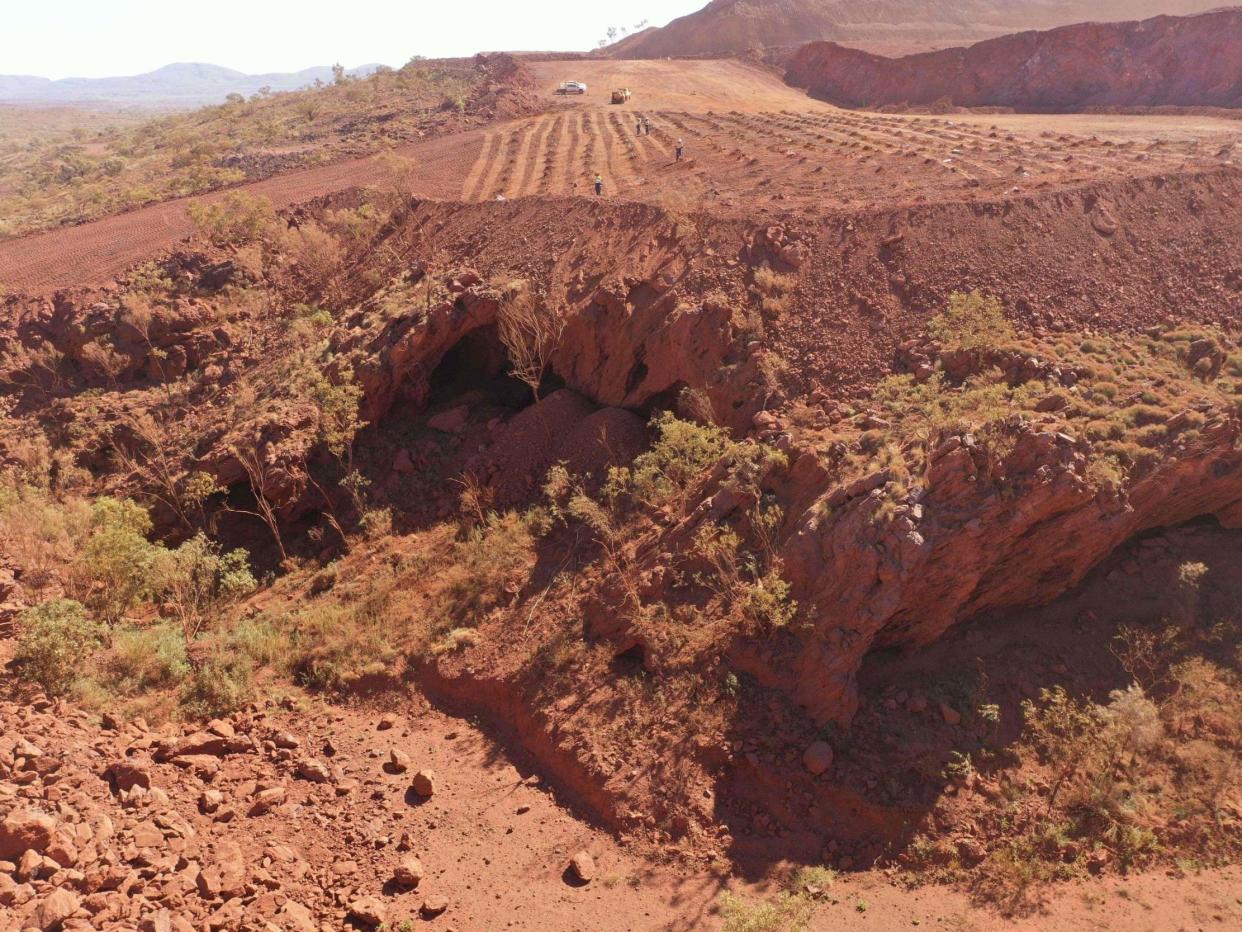Rio Tinto bosses lose bonuses over Aboriginal cave destruction

Three executives of mining company Rio Tinto have had their bonuses axed over the "devastating" destruction of two sacred Aboriginal caves in Australia.
The ancient Aboriginal site in Pilbara, Western Australia, was one of the oldest historic sites in the country and showed evidence of continuous human habitation dating back 46,000 years.
Rio Tinto blew up two rock shelters in Juukan Gorge to expand one of the company’s open-cut iron ore mines on 24 May. Its senior executives claimed they were not aware of the site’s significance until after it was destroyed.
Chief executive Jean-Sebastien Jacques will lose a total of £2.7m, whilst Chris Salisbury, chief executive of iron ore, and Simone Niven, group executive of corporate relations, will lose bonuses of over half a million pounds each.
However, all three executives will remain in their roles. Mr Jacques took home £5.8m last year, including bonuses, and he received a 27 per cent pay rise earlier this year, reported trade magazine Australian Mining.
Rio Tinto has apologised to the rock shelters’ traditional owners, the Puutu Kunti Kurrama and Pinikura people.
“The destruction of the rock shelters should not have happened and we are absolutely committed to listening, learning and changing,” it said in a statement.
“The board review concluded that while Rio Tinto had obtained legal authority to impact the Juukan rock shelters, it fell short of the standards and internal guidance that Rio Tinto sets for itself over and above its legal obligations,” it added following an internal review that concluded there was “no single root cause or error that directly resulted in the destruction of the rock shelters”.
But the Australian Centre for Corporate Responsibility deemed the company’s internal report as an insult to traditional owners, with strategy leader James Fitzgerald arguing that Mr Jacques should be sacked.
“There’s no findings in relation to them and yet they’re being fined millions of dollars,” said Mr Fitzgerald about the three executives.
An appalling and inadequate response from Rio Tinto internal review which recommends to the Board that Rio Tinto executives be stripped of approx $5m bonuses over destruction of Juukan Gorge rock shelters https://t.co/RloI4OipAC
— IndigenousStudies (@IndigenousUoM)
“It says to me that this is just a bit of an empty gesture in order to deflect the anger of shareholders and others.”
The chairman of a parliamentary committee examining the demolition said earlier this month that Rio Tinto’s actions “beggar belief”.
Warren Entsch said during a hearing earlier this month: “It seems to me that in spite of everything that happened, this was totally avoidable.
“There were a number of warning bells and I’m very interested to find out why those warning bells weren’t investigated further. It just beggars belief.”
The PKKP Aboriginal Corporation previously said the loss of the site was a “devastating blow”.
John Ashburton, a PKKP representative, told Reuters: “There are less than a handful of known Aboriginal sites in Australia that are as old as this one… Its importance cannot be underestimated.
“Our people are deeply troubled and saddened by the destruction of these rock shelters and are grieving the loss of connection to our ancestors as well as our land.”
The Independent has contacted the PKKP Aboriginal Corporation for comment.

 Yahoo News
Yahoo News 
